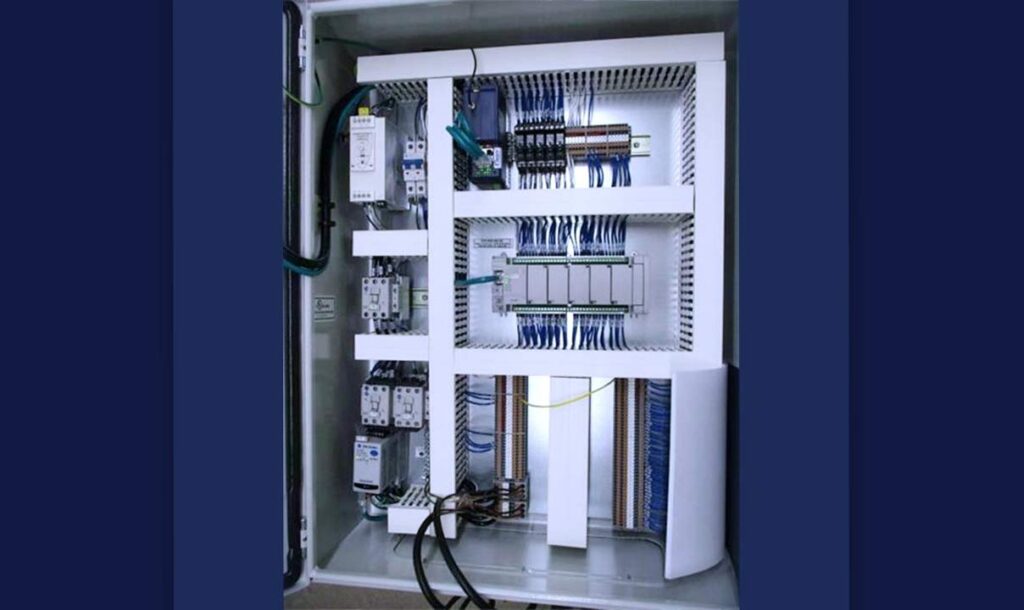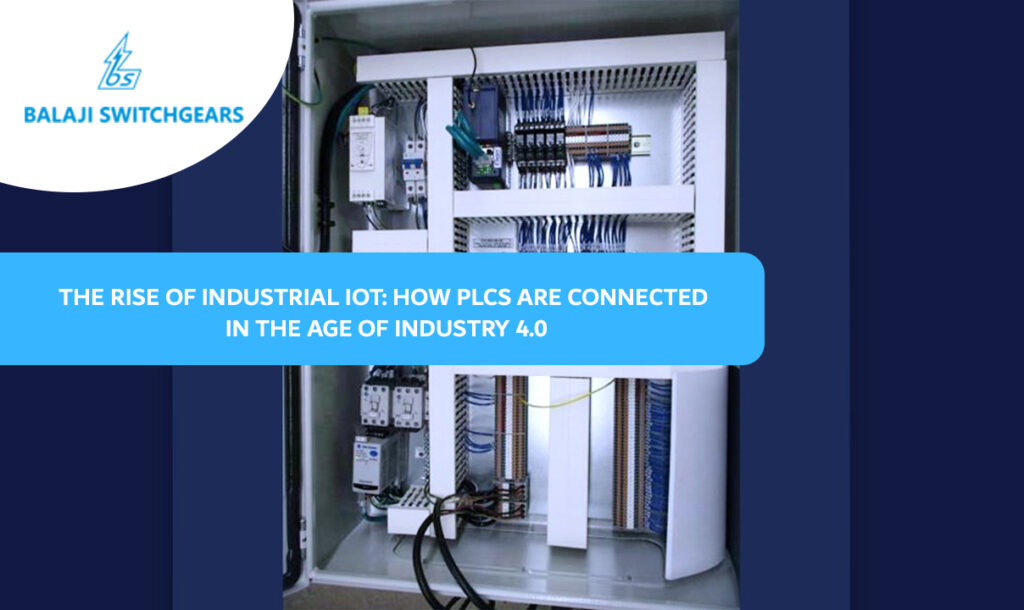The industrial landscape is undergoing a revolutionary transformation, known as Industry 4.0, where traditional manufacturing and industrial practices are being upgraded with the latest technology. At the heart of this transformation lies the Industrial Internet of Things (IIoT), a network of connected devices that communicate and exchange data to optimize production processes. Among the key components driving this change are Programmable Logic Controllers (PLCs), essential in industrial automation. This blog explores how PLCs are integrated into the IIoT ecosystem and how they are shaping the future of manufacturing and industrial operations.
Understanding Industry 4.0 and IIoT
Industry 4.0 represents the fourth industrial revolution, characterized by the fusion of digital technologies, automation, and data exchange in manufacturing. Central to this revolution is the Industrial Internet of Things (IIoT), which involves the interconnection of machines, sensors, and devices to create a smart network capable of making autonomous decisions. This network enhances operational efficiency, reduces downtime, and enables predictive maintenance, ultimately leading to cost savings and improved productivity.
The Role of PLCs in Industrial Automation
Programmable Logic Controllers (PLCs) have been a cornerstone of industrial automation since their inception. Originally designed to replace relay-based control systems, PLCs have evolved to become sophisticated controllers capable of managing complex automation processes. They are used to monitor and control machinery, production lines, and other industrial processes by processing real-time data and executing programmed instructions.
PLCs are renowned for their reliability, durability, and real-time processing capabilities, making them indispensable in environments where precision and control are critical. However, as the industrial landscape shifts towards digitalization, the role of PLCs is expanding. In the age of Industry 4.0, PLCs are not just isolated controllers; they are becoming integral parts of the IIoT ecosystem.

Integrating PLCs into the IIoT Ecosystem
The integration of PLCs into the IIoT network is a game-changer for industrial automation. Here’s how PLCs are being connected in the age of Industry 4.0:
- Connectivity and Communication: Modern PLCs are equipped with advanced communication protocols such as Ethernet/IP, Modbus TCP/IP, and OPC UA, allowing them to connect seamlessly with other devices and systems. This connectivity enables real-time data exchange between PLCs and the central control system, as well as with cloud-based platforms for data analytics and remote monitoring.
- Data Collection and Analysis: PLCs are now capable of collecting vast amounts of data from sensors and machinery. This data can be analyzed in real-time to monitor equipment performance, identify inefficiencies, and predict potential failures. By leveraging the power of data, manufacturers can implement predictive maintenance strategies, reducing unplanned downtime and extending the lifespan of machinery.
- Edge Computing: One of the significant advancements in IIoT is the concept of edge computing, where data processing occurs closer to the source of data generation rather than relying solely on centralized cloud systems. PLCs play a crucial role in edge computing by processing data at the machine level, enabling faster decision-making and reducing latency.
- Cybersecurity: As PLCs become more connected, ensuring their security is paramount. Cybersecurity measures such as encryption, authentication, and firewalls are being integrated into PLCs to protect industrial networks from cyber threats. Manufacturers must prioritize cybersecurity to safeguard their operations from potential breaches.
- Scalability and Flexibility: The modular nature of PLCs allows them to be easily scalable and adaptable to different industrial environments. Whether it’s a small manufacturing unit or a large-scale production facility, PLCs can be configured to meet specific automation requirements. In the context of Industry 4.0, this flexibility is crucial as it allows manufacturers to scale their operations without overhauling their entire automation system.
The Benefits of PLCs in Industry 4.0
The integration of PLCs into the IIoT ecosystem brings several benefits to manufacturers and industrial operators:
- Enhanced Operational Efficiency: Real-time data monitoring and analysis enable more efficient production processes, reducing waste and optimizing resource utilization.
- Predictive Maintenance: By analyzing data from PLCs, manufacturers can predict equipment failures before they occur, allowing for timely maintenance and reducing costly downtime.
- Improved Decision-Making: With access to real-time data, managers can make informed decisions that improve productivity and profitability.
- Increased Flexibility: The ability to scale and adapt PLCs to different applications makes them ideal for dynamic industrial environments.
- Cost Savings: Optimized processes, reduced downtime, and efficient resource utilization lead to significant cost savings in the long run.
The Future of PLCs in Industry 4.0
As Industry 4.0 continues to evolve, the role of PLCs in industrial automation will become even more critical. Future advancements in artificial intelligence (AI), machine learning, and cloud computing will further enhance the capabilities of PLCs, making them smarter, more efficient, and more secure.
At Balaji Switchgears, we understand the importance of staying ahead of technological trends. As a leading supplier of low voltage switchgear and industrial automation products, we are committed to providing our clients with cutting-edge solutions that drive innovation and efficiency. Our range of PLCs is designed to meet the demands of Industry 4.0, ensuring that your operations remain competitive in a rapidly changing industrial landscape.
Conclusion
The rise of Industrial IoT and the advent of Industry 4.0 have transformed the role of PLCs in industrial automation. No longer just simple controllers, PLCs are now key components of a connected ecosystem that drives efficiency, reduces costs, and enhances productivity. As the industry continues to evolve, PLCs will play an increasingly vital role in shaping the future of manufacturing and industrial operations.


Your blog is a true gem in the world of online content. I’m continually impressed by the depth of your research and the clarity of your writing. Thank you for sharing your wisdom with us.